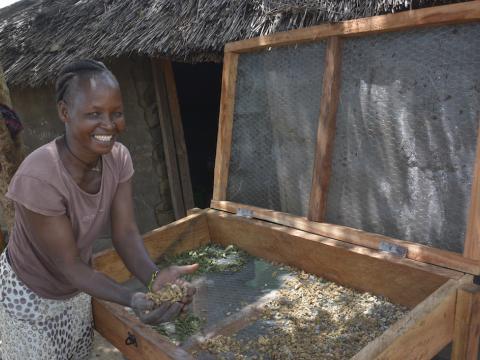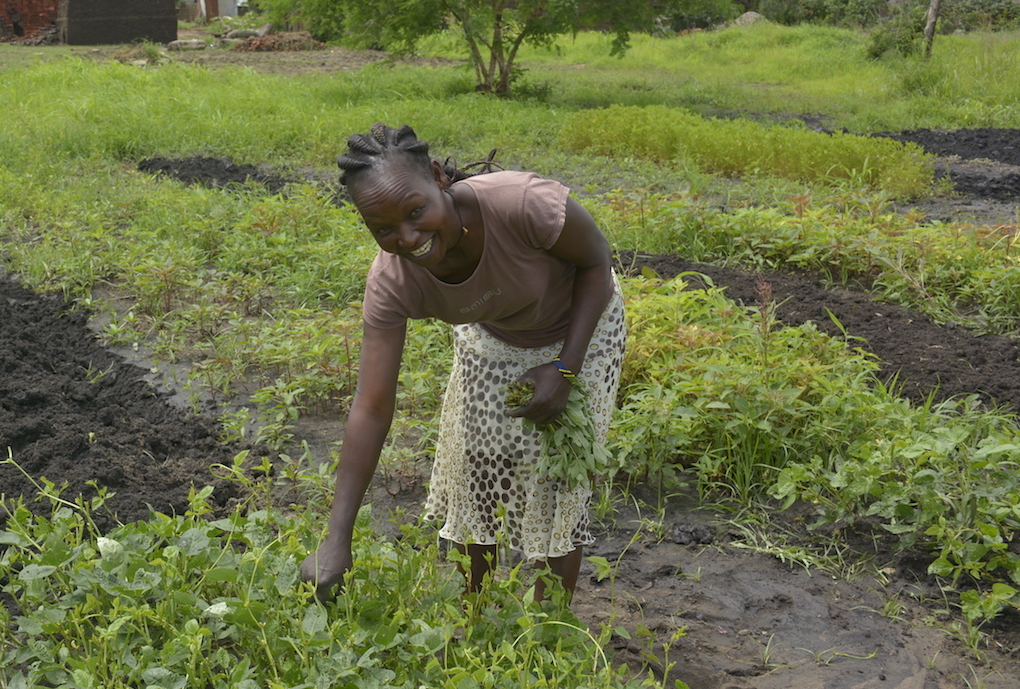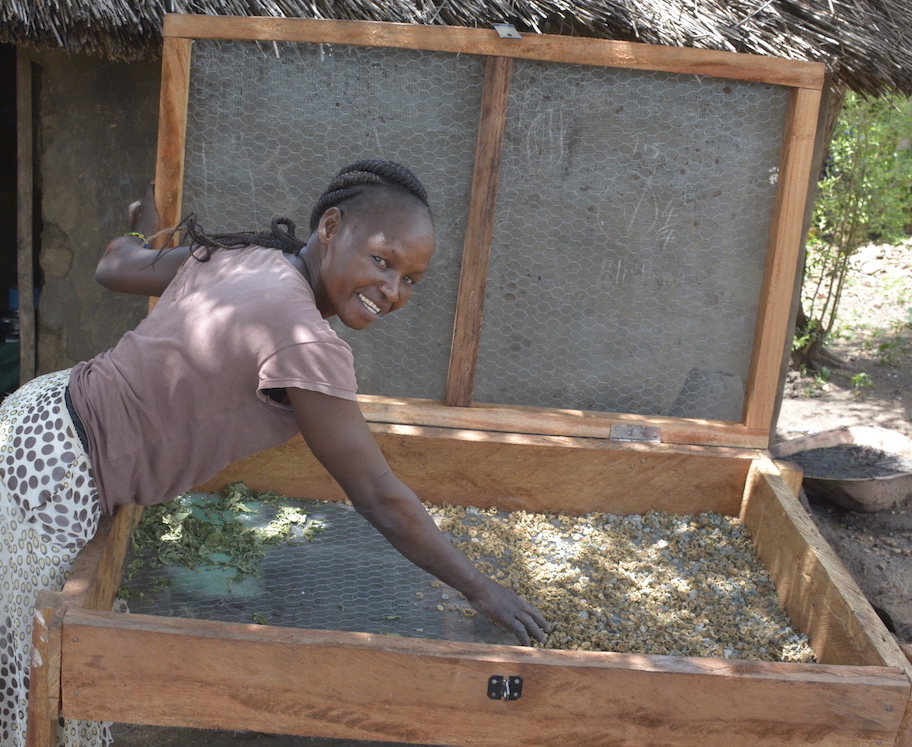Solar dryers transform the way farmers preserve and market their products

By Lisi Emmanuel Alex, Communications Officer, World Vision South Sudan
As the fight for hunger intensifies in South Sudan, communities and World Vision explore ways to improve methods on vegetable production and preservation. The farmers were provided with seeds and livestock at the start of the project and were trained on various agriculture techniques. Most of them testify the positive changes that the food and livelihoods program has brought in their lives, especially benefitting their children.
For a long time, many of these farmers were like the rest in South Sudan, even in the African continent, who use traditional ways of planting and preserving their harvest for vegetables such as okra, jute mallow, eggplants among others.
After harvest, the vegetables were usually spread on the ground to dry from the sun. This method is very challenging because the wind blows sand on the vegetables. Often, drying takes time and animals like goats, sheep, and chickens can take over. The vegetables can get damaged and sold at low price in the market.
The introduction of solar dryer was a wish granted for 40-year old Raida Kiden, a mother of five who is among the 250 farmers trained how to build and use the new technology. Simply designed and easy to do, the dryers can protect the farm products from dust and animals. World Vision provided them with materials and encouraged them to share the skills to the rest of the people in the community.
A technology paper described solar drying as “the transfer of the moisture from the surface to the surrounding air, in the form of water vapor. Solar radiation, in the form of solar thermal energy, is an alternative source of energy for drying especially to dry fruits, vegetables, agricultural grains and other kinds of material, as wood, etc.”
Raida says, “My vegetables used to ferment prematurely whenever I am drying them due to inadequate heat and air. After World Vision gave us these solar dryers, the vegetable are clean and do not ferment anymore”, Kiden said.
“I feel very happy because my vegetables have a ready market. After I sell them, I am able to buy soap, clothes, food stuff and pay my children’s school fees”, Kiden added. Beside the group farm, Kiden also uses what she learned from her own farm. She plants fruits such as mangoes, guava, and oranges. She added that she is getting more profit from the sales of her vegetables and the fruits.
Few farmers in South Sudan have interest in planting fruits. Kiden explained that this attitude should change as fruit trees provide cool shades, especially during dry season. Under the Fortifying Equality and Economic Diversification (FEED) Project, World Vision established 688 farmers’ field schools where 21,148 beneficiaries were empowered with innovative agronomical practices.
Stephen Rojas, the project assistant for World Vision’s Urban Nutrition Project funded by Food and Agriculture Organization (FAO) in Juba explained that they trained a total of 2,500 beneficiaries comprising mostly of women who are widows, elderly, pregnant and lactating mothers. FAO, in partnership with World Vision, provides vouchers, seeds, and farming tools. The beneficiaries were trained on modern agriculture techniques such as the use of energy saving Lorena cooking stove, kitchen gardening and the use of solar dryers.
“We train them on the use of Lorena cooking stove because it uses minimal fire wood. It is environment-friendly and prevents putting children in danger from burns”, explained Rojas.
“We are proud to say as World Vision that we will leave these vulnerable people with skills that can simplify their living standard especially with the use of kitchen garden because most of the vulnerable people don’t have power to farm yet they need to feed”, he added.

